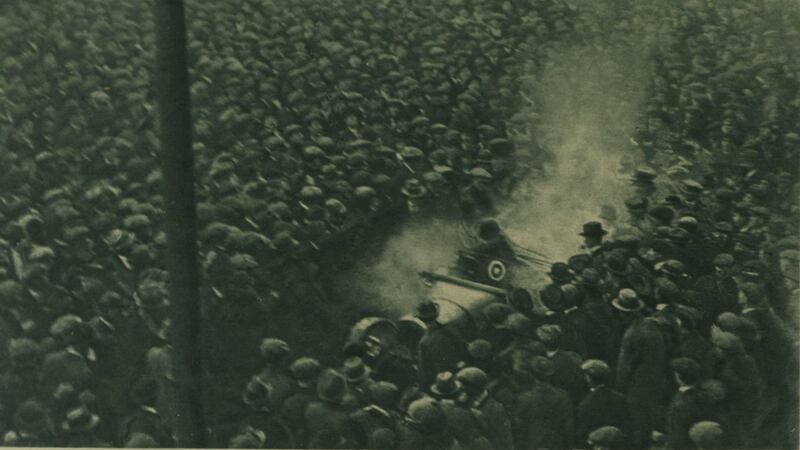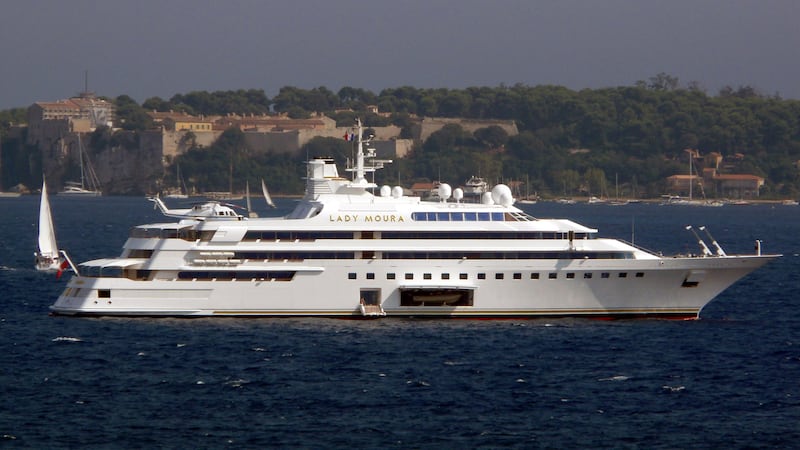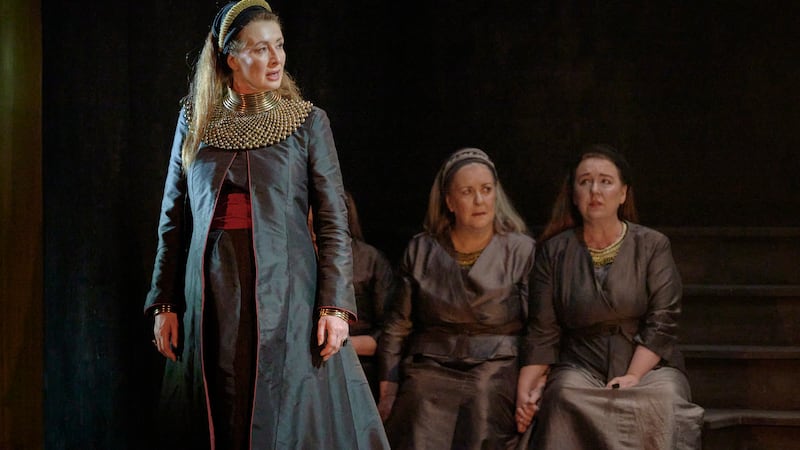A fine soft day in the spring it was when the train pulled into Castletown three hours late as usual, and himself got off.
“Is this The Bluffer’s Guide to Irish?” asked Sean Thornton.
Yes, it is begorra – so let’s get started.
Podchraoladh is a podcast and while the Bluffer is out walking there is nothing he likes better that putting the cluaisíní - earphones in and listening to one of his favourite podcasts.
An éisteann tú le podchraolta - Do you listen to podcasts? is a very 2019 thing to ask.
It’s on a break faoi láthair - at the minute
but RTÉ’s The History Show is definitely his favourite. There has rarely been an item where the Bluffer hasn’t learnt something fascinating.
Tá sé iontach suimiúil - it’s very interesting, so it is.
Mar shampla - for example, yesterday morning he was listening to an item on the Belfast Engineering Strike of 1919 with an staraí - the historian Pádraig Yeates being interviewed by the show’s presenter, Miles Dungan.
So, what did the Bluffer learn?
Well, after the huge effort engineering workers put in during the First World War, the average working week for a man was 54 hours and often 60 hours with overtime in 1919.
Bím ag obair 40 uair sa seachtain - I work 40 hours a week is something you could say when asked in conversation.
Pá or tuarastal is pay and it didn’t keep up with inflation (boilsciú if you must know) during the war, so many people had to work long hours to make ends meet.
So in 1918 chuir na ceardchumainn éileamh isteach - the Trade Unions put in a claim for a 44-hour week.
In all good negotiations, a comhréiteach - a compromise was reached with employers offering a 47-hour week.
This was accepted everywhere – except on the Clyde and in Belfast, two cities with huge longthógáil - shipbuilding industries.
Yeates explained that Clyde workers wanted 30-hour week, not because they were lazy but the shorter working week would create fostaíocht - employment for men coming back from the war.
Yeates tells us that over 80% of the ships built in Ireland were built in Belfast and over 40% of the good manufactured in Ireland were made in Belfast.
There were 40,000 people involved in innealltóireacht - engineering and all came out on strike in support of the 44-hour week.
(Tá muid ar stailc - we are on strike)
As happened in 1974, na stáisiún cumhachta - the power stations closed down.
Theip ar na stailceanna - the strikes failed and the men returned to work but the scene was set for more industrial action that would eventually lead to shorter working week for most industrial workers in Britain and Ireland.
The History Show is blessed with a presenter who is also a historian in Myles Dungan and a whole host of guests who are experts in their field but also great storytellers.
Subjects can range from Granuaile to jazz in Ireland, Gaelic games, Rosa Parks and the contraceptive train.
All well worth a listen.
CÚPLA FOCAL
Podchraoladh(pawdkhrayloo) - a podcast
cluaisíní(clooisheenee) - earphones
An éisteann tú le podchraolta(un ayshtin too le pawdkhraylta) - Do you listen to podcasts?
faoi láthair(fwee laher) - at the minute
Tá sé iontach suimiúil(taa shay eentakh simooil) - it’s very interesting
Mar shampla (mar hampla) - for example
an staraí(un staree) - the historian
Bím ag obair 40 uair sa seachtain(beem eg ubber dyhad oor sa shakhtin) - I work 40 hours a week
Pá/tuarastal(paa/toorastal) - pay
boilsciú(bwolshkyew) - inflation
chuir na ceardchumainn éileamh isteach (kher ne kyardkhumin) - the Trade Unions put in a claim
comhréiteach(coe-raytchakh) - a compromise longthógáil(lung-hoegaal) - shipbuilding
fostaíocht(fosteeakht) - employment
innealltóireacht(inyiltoreakht) - engineering
Tá muid ar stailc(taa midge er staalk) - we are on strike
na stáisiún cumhachta(ne staashoon cuwakhta) - the power stations
Theip ar na stailceanna (hep er na staalcana) - the strikes failed


